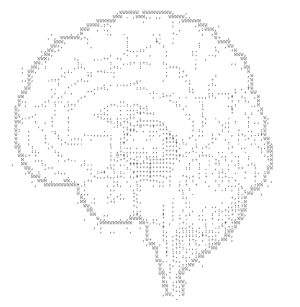Brain and Language and Rita Levi-Montalcini
Posted: March 4th, 2009 | Author: perplitudine | Filed under: Language, Neurology | Comments Off on Brain and Language and Rita Levi-Montalcini
[IT] Un blog multilingue. Scrollate finche’ non vi diventa intelligibile. Grazie.
[EN] A multilingual blog. Scroll until it becomes intelligible to you. Thanks.
[HR] Visejezicni blog. Scrollajte dok vam ne postane razumljiv. Hvala.



[IT] “Bisognerebbe
spiegarlo ai giovani, dei due cervelli. I giovani di oggi si illudono
di essere pensanti. Il linguaggio e la comunicazione danno loro
l’illusione di stare ragionando. Ma il cervello arcaico, maligno, e’
anche molto astuto e maschera la propria azione dietro il linguaggio,
mimando quella del cervello cognitivo. Bisognerebbe spiegarglielo”
[EN]
“That would need to
be explained to young people, that there are two brains. The young
today deceive themselves to be thinking. The language and the
communication give them an illusion that they are reasoning. But the
archaic brain, the malicious one, is also very astute and masks its
activity behind language, miming that of the cognitive brain. That
would need to be explained to them”
[HR]
”Trebalo bi objasniti
mladima, o postojanju dva mozga. Mladi se danas zavaravaju da misle.
Jezik i komunikacija im daju iluziju razmisljanja. Ali arhaicki,
zlobni mozak je takodjer vrlo prepreden i prikriva svoju aktivnost
iza jezika, imitirajuci kognitivni mozak. To bi im trebalo objasniti"
”Trebalo bi objasniti
mladima, o postojanju dva mozga. Mladi se danas zavaravaju da misle.
Jezik i komunikacija im daju iluziju razmisljanja. Ali arhaicki,
zlobni mozak je takodjer vrlo prepreden i prikriva svoju aktivnost
iza jezika, imitirajuci kognitivni mozak. To bi im trebalo objasniti"
Rita
Levi-Montalcini in Wired Italy, n. 1, March 2009, pp. 82-88
(Interview by Paolo Giordano)

[IT] Mi
pongo, in questi giorni, il problema del linguaggio, della creazione
del senso e cosa ci porta a fare, delle parole, azioni, scelte,
dinamiche. Questa citazione mi ha fatto riflettere parecchio, e altre
risposte ancora che non riporto qui. Potra’, come suggerisce Rita
Levi-Montalcini, succedere che lo stesso cervello che ha salvato
l’australopiteco (“arcaico, limbico, localizzato nell’ippocampo,
che non si e’ praticamente evoluto da tre milioni di anni fa a oggi”)
potrebbe portare l’homo sapiens all’estinzione?
Sapevate
da quanto tempo esiste l’altro cervello, quello cognitivo, nato con
il linguaggio? Dalle spiegazioni di Rita Levi-Montalcini, pare che in
soli 150milla anni abbia avuto uno sviluppo straordinario,
specialmente grazie alla cultura.
Cosa pensare di: pensieri, emozioni, categorie, ricordi, ansie, decisioni, io,
me, tu, te, lui, lei, noi, voi, loro ecc.?Societa’, biologia, cultura, istinti, intenzioni … letture … del mondo. E scritture.
[EN] I
am wondering, these days, about the problem of language, of the
creation of sense and what it leads us to do, about words, actions,
choices, dynamics. This citation has made me reflect a lot, and so
did other replies which I did not copy here. Will it be possible, as
Rita Levi-Montalcini suggests, that the same brain that has saved the
Australopithecus (“archaic, limbic,
localized in the hippocampus, which hasn’t practically evolved since
three millions of years ago” – I hope I got the terminology right) might bring homo sapiens to
extinction?
Did
you know how old is the other brain, the cognitive one that is born
with language? From the explanations of Rita Levi-Montalcini,
appears that it in only 150 thousands of years it has had an
extraordinary development, especially thanks to culture.
What to think of: thoughts,
feelings, categories, memories, anxieties, decisions, I, me, you, he,
she, it, we, us, you, they, them, etc.? Society, biology, culture, instincts, intentions, … readings … of the world. And writings.
[HR] Pitam se, ovih dana, o
problemu jezika, o stvaranju smisla i kako utjece na ponasanje, o
rijecima, akcijama, izborima, dinamikama. Ovaj citat me potakao
poprilicno na razmisljanje, kao i ostali odgovori koje nisam ovdje
prenijela. Hoce li biti moguce, kako sugerira Rita Levi-Montalcini,
da isti mozak koji je spasio Australopiteka (“archaic,
limbic, localized in the hippocampus, which hasn’t practically
evolved since three millions of years ago” – nadam se da nisam pogrijesila terminologiju, ne usudim se prevesti i na hrvatski), dovede homo sapiensa
do izumiranja?
Jeste
li znali koliko je star onaj drugi mozak, kognitivni, rodjen sa
jezikom? Iz objasnjenja Rite Levi-Montalcini, izgleda da je u samo
150 tisuca godina dozivio ogroman razvoj, pogotovo zahvaljujuci
kulturi.
Sto misliti o:
mislima, osjecajima, kategorijama, sjecanjima, ansijama, odlukama, ja, ti, on,
mi, vi, oni, itd.? Drustvo, bilogija, kultura, instinkti, namjere, … iscitavanja … svijeta. Ali i ispisivanja.